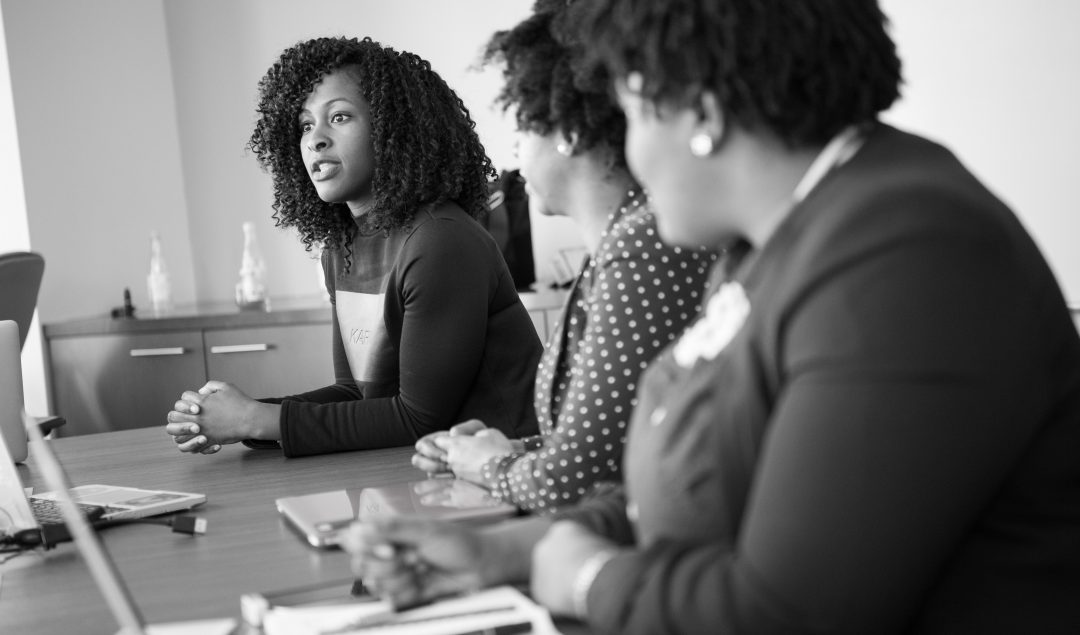Changing a Startup From The Inside: 12 Months of Inclusive Habits

What is the most powerful way you can transform a company’s culture? One year ago when I joined Brandwatch as VP of Global Community & Belonging I made a gamble that only habits, not one-off actions, would help us achieve the progress we wanted.
From hiring more Black people at all levels, to delivering bias and inclusion training to all employees from leadership downwards, our diversity and inclusion goals at Brandwatch have always been bold.
But being bold about belonging means you have to have an appetite for risk. And with risk comes discomfort. From day one I challenged my team mates to lean into that discomfort — and to make a habit of embracing discomfort while discussing identity, bias and privilege.
What started as a novelty soon became the norm, thanks to our regular sofa sessions, expert-led discussions and global training program. Turning novelties into norms has been the case for all the inclusive habits I’ve helped our global team adopt.
Seeing the diversity amongst our new starters, and reading the participants’ feedback from our global training program — I can see these habits are holding our culture accountable to belonging best practices.
I’m sharing Brandwatch’s inclusive habits here to inspire you to hold your team accountable to more inclusive habits, too — see how far they can take you over the next 12 months.
Reducing bias in recruitment
We understand that bias comes in many forms, explicit and implicit, and that means we have to actively reduce bias wherever we can — especially in our recruitment processes. This habit has helped us develop more diverse interview panels and interview scripts to ensure a consistent candidate experience when hiring.
Being patient with the journey
We understand that our company exists within a global society and that the pace of change we want to achieve on the inclusion front is impacted by global events and local cultural context. We would love to have better team representation data tomorrow. We know that sometimes we must be patient and stick with our efforts, even if results don’t come overnight.
Zooming out
We understand that it’s easy to take things personally, or only see things from the perspective of our role, our team, our department or our business. But life is complicated, and our productivity is impacted by our lived experiences and events unfolding around us. Zooming out helps us put things in perspective and practice compassion so we can be better active allies.
Creating system-level changes
We understand that quick fixes aren’t the most long-lasting or sustainable. When we identify a blocker we think of what we can change systemically to help us reach our goal and maintain it e.g. re-planning compensation so we can transparently share salary bands internally and externally.
Creating space to have difficult conversations
We know that we all experience the same world and the same workplace differently due to our identities, backgrounds and the privileges that come with all that. Sofa sessions and expert-led discussions help us engage in difficult conversations so we can gain confidence discussing “-isms” and other key issues related to belonging.
Consulting with experts and external communities
We know that we do not have all the skills and expertise within our global team to achieve our inclusion goals. That’s why we invest in partnerships with external communities like THISAbility, POCIT, Your Startup Your Story, Coding Black Females and BUILD to gain access to talent we can’t find on mainstream platforms and to learn more about communities we care about.
Cultivating awareness of our privileges, biases and structural oppression
We know that in a fast-changing world, to help our employees excel and to attract the best talent we must constantly promote psychological safety and trust. Through workshops, live events and learning resources we cultivate our awareness of our privileges and biases and systemic injustice to ensure we can foster belonging and challenge exclusion.
Actively challenging bias
We know that our company culture is composed of all of our individual words and actions. We hold ourselves accountable to actively challenging bias wherever we see it manifest — from the language we use in job descriptions to the way we conduct meetings, ensuring no one is being interrupted and no single voice is dominating airtime.
Taking risks and trying experiments
We know that real-life data is far more valuable than a hypothetical debate. When we have a chance to try something new to help us reach our goals — we take it. We’ve run sourcing jams to help us identify underrepresented candidates for open roles in engineering, marketing and beyond. We’ve hired people who never would have entered our candidate pool without that.
—



